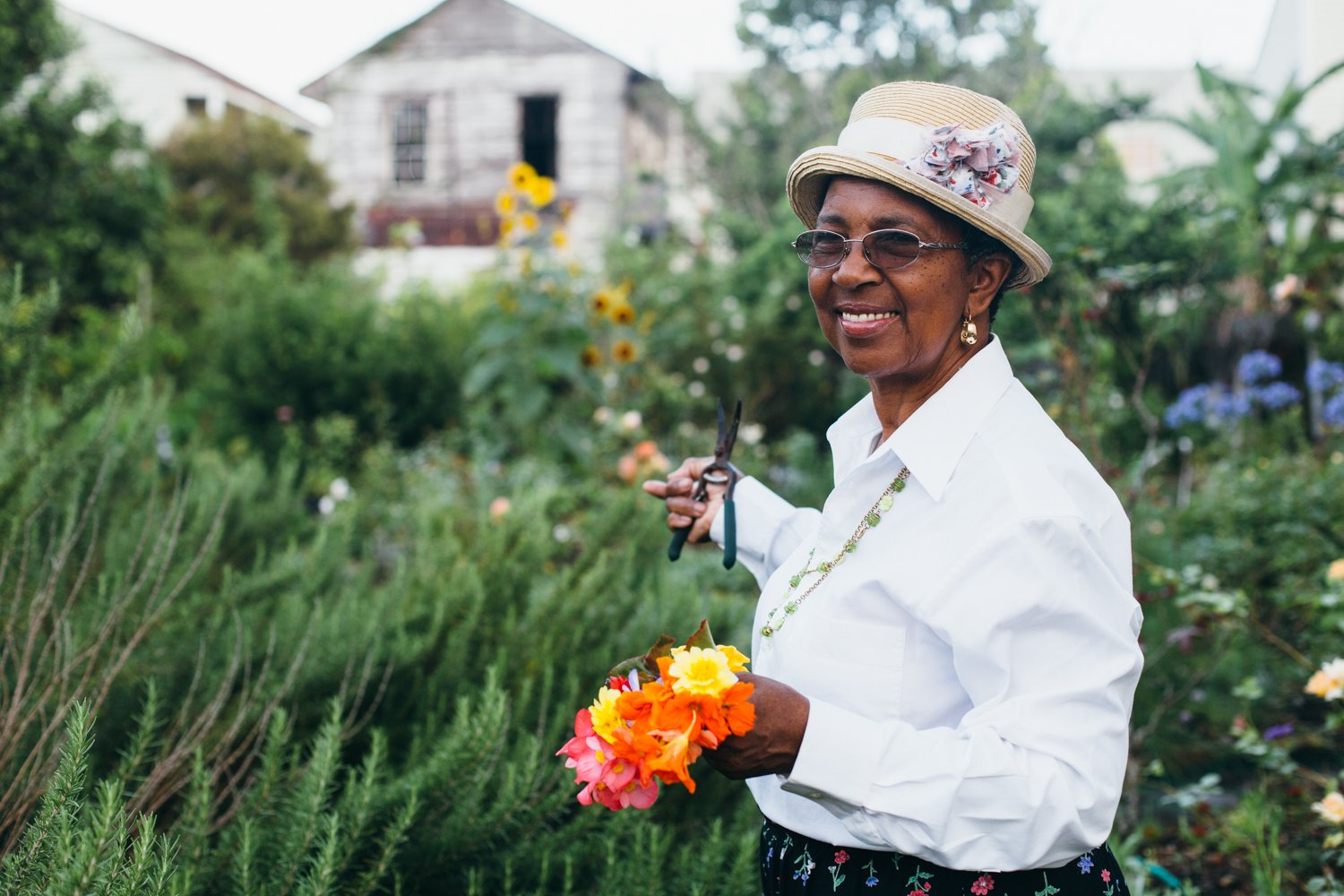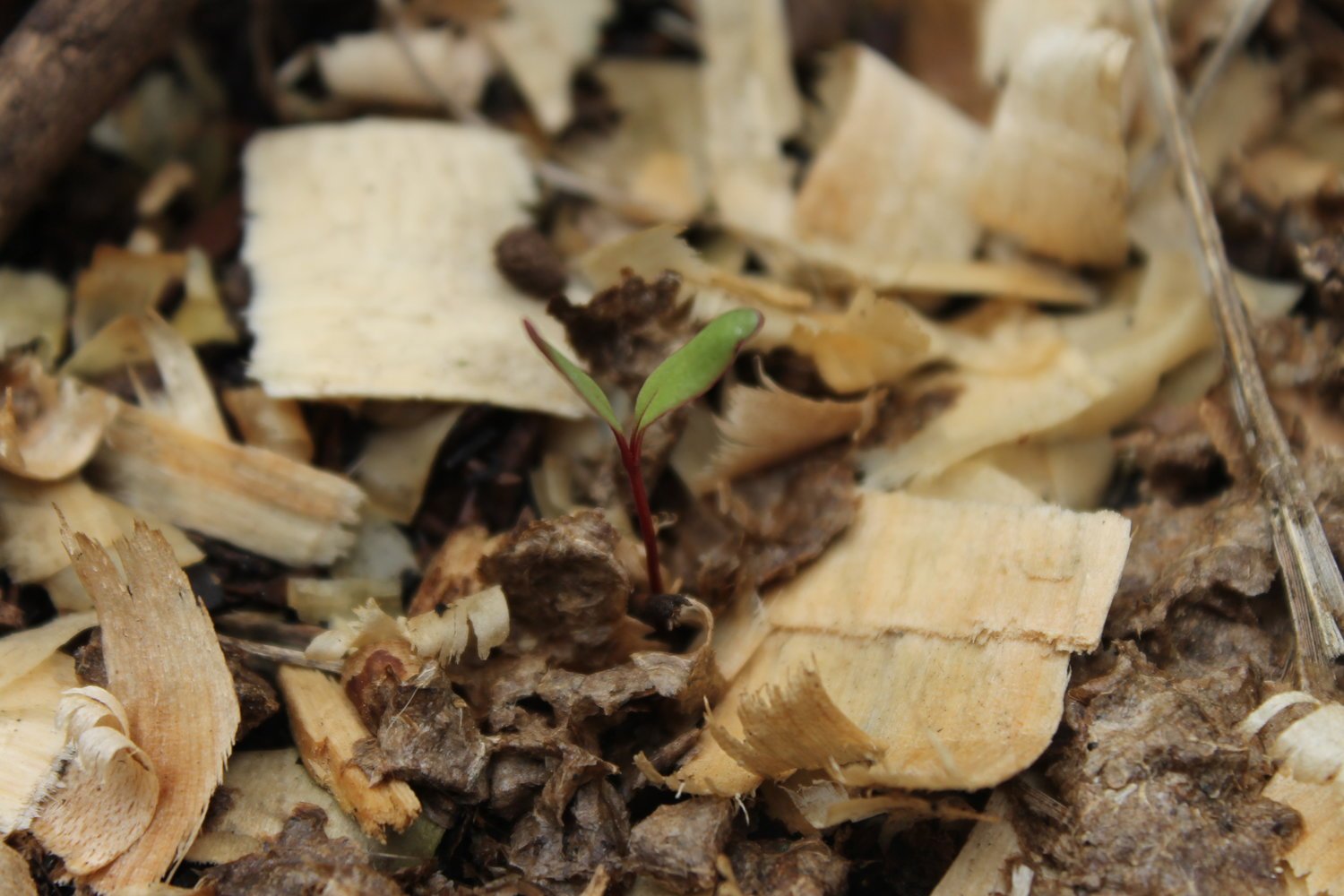Black History in Nature: Vol. 4
Like many Black people we celebrate Black history all day, every day. But for the month of February, we’re sharing 28 histories of Black innovation and creativity in agriculture, gardening, and beyond on our Instagram.
February 22: Black Grandmothers + Plants
Yesterday had us thinking about our grandmothers...the ones who introduced us to the love of plants. Childhoods spent cutting grass, playing in the backyard, picking flowers, and watching them tend to their gardens + houseplants. At the time we didn’t realize how important that connection would be for us. Plants are our direct connection with them now. We grow roses in memory of them and with every bloom a blessing from our gardening grandmothers.
February 23 + 24: Black Gardens + Decor
In many Black southern gardens it’s common to see the color white incorporated amongst the greenery. The color white is a symbol of good character and a reminder to live your life in the best ways. Garden beds are edged with white painted rocks or up-cycled white tires used as planters. Black gardens also include recycled objects turned into planters and decor. Several of these objects include furniture, old appliances, water jugs, bathtubs, glass jars, bottles, car parts, and tea kettles. These items are valued as they were once used and now appropriated for new purposes.
February 25: Henry Kirklin
Award-winning gardener and horticulturist Henry Kirklin was born into slavery in Boone County, Missouri. For six years as a teenager and freeman he worked at a nursery + greenhouse gradually working up to a dollar a day. He then joined the University of Missouri’s Horticulture Department as a garden and horticulture specialist. Recognized for his profound skills with plants, the department unofficially asked him to teach. Because of the rampant racism, Kirklin was not allowed to teach in a classroom, but outside in the open air. Hundreds of students learned the art of grafting, pruning, and propagating from Kirklin. While teaching he purchased half an acre of land to grow highly sought after fresh produce. Throughout his life he received several awards for his innovative agricultural methods and growing techniques. Kirklin was a generous man often offering his expertise for free to Black students.
February 26: Fannie Lou Hamer - Black Farmers Cooperatives
In 1969, Civil Rights activist Fannie Lou Hamer the daughter of sharecroppers founded the Freedom Farm Cooperative. The co-op empowered Black farmers + sharecroppers and offered them economic independence. With a $10,000 donation from Measure for Measure, a charitable organization based in Wisconsin Hamer purchased 40 acres of prime Delta Land. Dedicated to grass roots participation membership cost $1 a month. The co-op planted cash crops like soybeans and cotton to pay taxes and administrative expenses. Vegetables, like cucumbers, peas, beans, squash, and collard greens were grown on the rest of the land and given back to those who worked the co-op. Over two years as the co-op grew they were able to purchase an additional 640 acres for cultivation. Due to discrimination they were unable to receive institutional backing. Further only 30 families could afford the $1 a month membership which led to the closing of the co-op. Hamer and the Freedom Farmers set the foundation for the continuation of social justice through agriculture. To read more about Fannie Lou Hamer and the legacy of the Freedom Farm Cooperative, check out Dr. Monica White’s book Freedom Farmers.
February 27: Support Black Farmers + Gardeners
If you live in New Orleans do yourself a favor and head to bfsnola.com. Jeanette Bell has been gardening for 40 years and grows all her flowers organically with no pesticides. Also head to Gloria’s Treme Garden for their local market in the community garden. Please share in the comments other Black people with plants we all can support in New Orleans + beyond.
If you don’t live in New Orleans take time to research + learn about Black gardens, farmers, herbalists, shops you can support.
February 28: Creating our own Black history in nature
We spend a lot of time talking about what Black People with Plants will look like in the future. A few things we always discuss is 1) how can plants and plant connections be made more accessible to Black people in our community, 2) what’s the best way to share all of the abundance of Black people’s history with nature, 3) how to find and create more projects incorporating plants, art, and design, and 4) how to connect every Black person with plants with one another to create a big beautiful Black botanical knowledge sharing family. This year we are manifesting something that will bring together all of these ideas.
What it looks like? We don’t know yet, but we’re heading in the right direction. If you have any suggestions or want to be plant friends please reach out!






